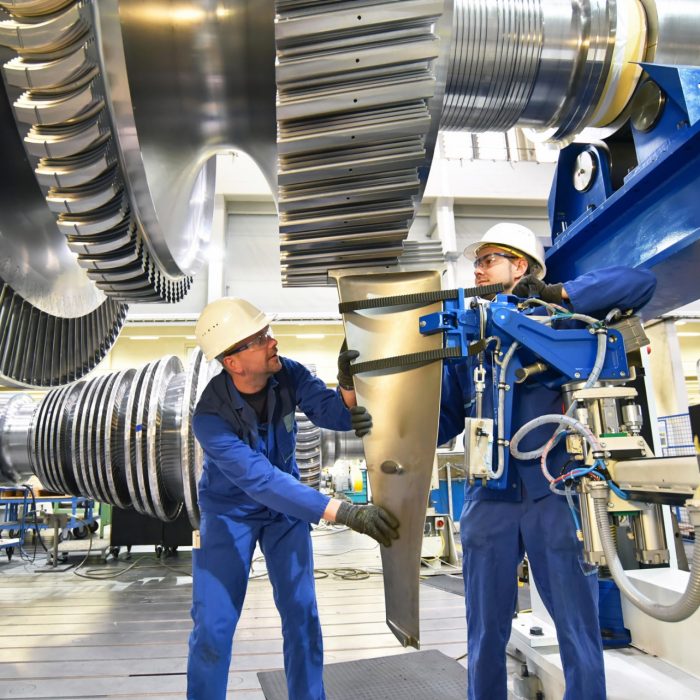Facilities

Our investment in major research infrastructure, equipment and facilities support our staff and students to work on innovative research and technology.
We are committed to providing a world-class learning experience by making the latest computer engineering software accessible to all our students.
Infrastructure laboratories
The Randwick Heavy Structures Laboratory and the Materials Research Laboratory and Geotechnical Engineering Laboratories support experimental research on various aspects of structural engineering.
Our laboratories are equipped with state-of-the-art servo-controlled hydraulic actuators and universal testing machines to maintain a capacity for high load testing, ranging from 10 kN to 5000 kN. We combine strength testing with X-Ray measuring of laboratory specimens under load. This improves understanding at the materials level for the development of refined, mechanically based, structural models.
Geotechnical engineering laboratories
The geotechnical engineering laboratories houses a range of conventional soil, rock and asphalt testing equipment.
Some key features include:
- triaxial cells, pressure plates and an oedometer for testing unsaturated soils at normal and elevated temperatures
- rotating cylinder and a specialist pin-hole apparatus for testing erosion of soils
- ring shear apparatus, a large shear box and high pressure triaxial cells for testing gravel
- rock and sands undergoing particle crush testing
- asphalt testing laboratory.
We’ve expanded our facilities to include a calibration chamber to conduct cone penetration tests in unsaturated soils as well as a high-performance thermal imaging camera to research progressive development of instability and failure in soil and rock samples.
Surveying & geospatial engineering laboratories (SAGE Lab)
The SAGE Lab supports our teaching and research capabilities in surveying and geospatial engineering. It has the latest surveying instruments and software to provide our experts to research survey practices, photogrammetry and remote sensing, precise and kinematic GNSS positioning and geospatial engineering.
Visit the SAGE website for more information.
Satellite navigation & positioning laboratories (SNAP Lab)
The SNAP Lab is dedicated to research on wireless, ground-based and satellite-based positioning technology and applications. The Lab is a collaborative initiative between UNSW School of Civil and Environmental Engineering and UNSW School of Electrical Engineering and Telecommunication. It also combines our expertise in geodesy, surveying & geospatial science, with that of electronics, signal processing and space engineering from the Australian Centre for Space Engineering Research.
Water Quality Laboratories, Water Research Centre
The Water Qualities Laboratories (WQL) is one of the important infrastructure facilities at the University of New South Wales (UNSW), dedicated to research and teaching in the School of Civil and Environmental Engineering. Operated in conjunction with the UNSW Water Research Centre, WQL serves as a crucial research facility for academics, students and researchers working on diverse water-related topics.
WQL is strategically located at the Kensington Campus, providing convenient access to the following cutting-edge laboratories:
- Radiation Laboratory: Equipped to study water quality impacts from radiation sources and relevant research applications.
- PC1/PC2 Laboratories: Ensuring safe experimentation and analysis of water samples for various contaminants.
- Clean / Microplastic Laboratory: Focused on studying microplastic pollution in water and devising solutions.
- Pilot Hall: A versatile space for conducting pilot-scale water treatment process studies.
- Air Quality & Odour Laboratory: Addressing issues concerning atmospheric emissions and odour related to water and wastewater treatment systems.
- Wet Chemistry & Analytical Laboratories: Equipped with state-of-the-art instruments for comprehensive water quality analysis.
- Fumehood Laboratory: Ensuring secure handling and investigation of hazardous substances in aqueous and gas samples.
Additionally, WQL extends its facilities to the Manly Vale Campus, housing the PC1 laboratory and a Wet Chemistry and Analytical Laboratory to cater to researchers' needs efficiently.
The WQL caters to the requirements of the school’s academics, students and researchers engaged in various water research domains, including but not limited to:
- Atmospheric emission, pollutants and odours.
- Groundwater quality research and management.
- Water quality and treatment processes.
- Water green-urban-management.
- Water recycling, wastewater and biosolids treatment.
UNSW Mark Wainwright Analytical Centre
Our students and staff have access to the facilities at the Mark Wainwright Analytical Centre including the DOC Labor Liquid Chromatography – Trace Organic Carbon Detector (LC-OCD). This is used for speciation and trace analysis of total carbon and nitrogen in water samples, such as drinking water, is available using the LC-OCD.
For more information, visit the Mark Wainwright Analytical Centre.
UNSW Odour Laboratory
The laboratory is a leading facility that specialises in interdisciplinary research and training for the assessment and management of odour and gaseous emissions. Researchers from the Lab collaborate with Government agencies, industry partners and utilities to provide specialist olfactory and chemical analysis for the characterisation of odorous and gaseous emissions.
For more information, visit The Odour Lab.
Water Research Laboratory (WRL)
Located in Manly Vale, the WRL has four large hydraulics laboratories for research and specialty consulting studies and is used for the construction of large-scale physical models.
For more information, visit the Water Research Laboratory.
Travel Choice Simulation Laboratory (TRACSLab)
Our TRACSLab laboratory allows our researchers to study travel choice and inter-dependent behavioural characteristics by incorporating group interactions.
For more information, visit the Travel Choice Simulation Laboratory.
